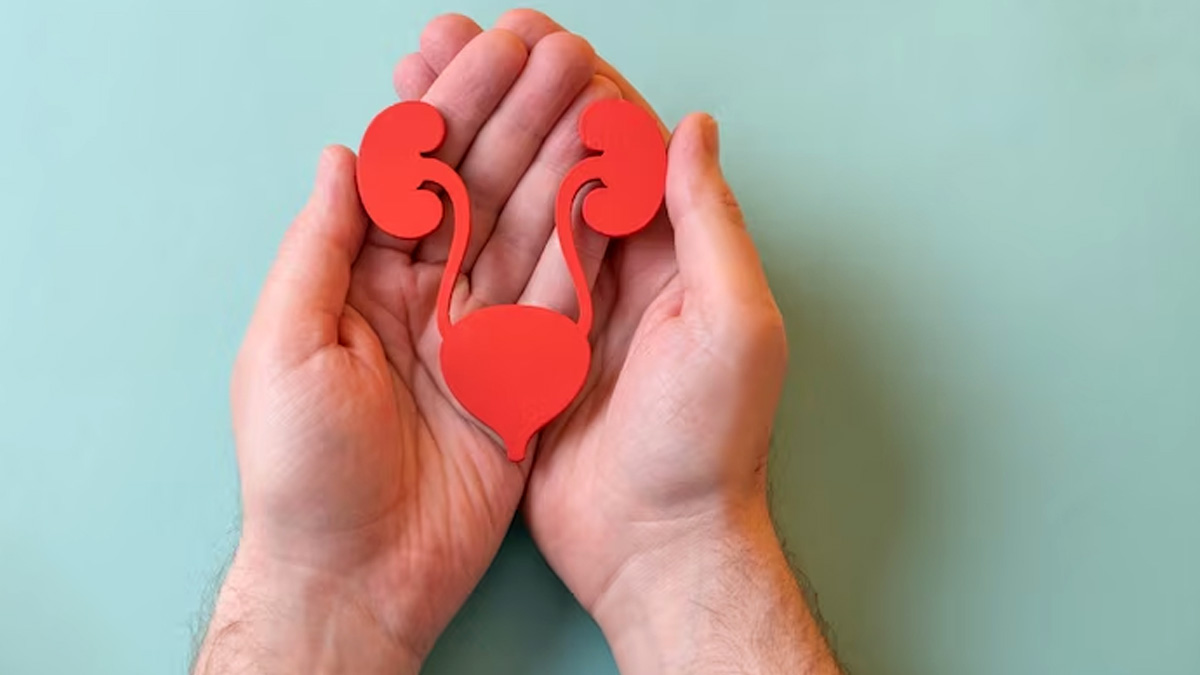
Kidney problems can cause a lot of distress. From urinary symptoms to oedema to weight loss and poor appetite, it can lead to several complications. However, kidney cancer is one of the most concerning diseases when it comes to renal health. On this World Kidney Cancer Day, Dr Nikhil Krishna Haridas, Consultant-Medical Oncology, Amrita Hospital, Kochi, discusses the many facets of kidney cancer ranging from its symptoms, diagnosis and treatment options.
Table of Content:-
Also Read: Multiple Sclerosis Can Cause Neurological Problems: Warning Signs To Note
What Is Kidney Cancer?

“Kidney cancer is a form of cancer that originates in the kidneys,” said Dr Haridas, adding, “It occurs when the cells in the kidney tissue grow abnormally, eventually forming a tumour.”
According to Cancer.Net, in 2020, an estimated 4.3 lakh people were diagnosed with kidney cancer worldwide. It is the 14th most common cancer worldwide, says the World Cancer Research Fund International, adding that it is the 9th most common cancer in men and the 14th most common cancer in women.
Dr Haridas said, “Kidney cancers can be categorised into three to four major types. The most common type, accounting for over 85% of cases, is known as renal cell carcinoma (RCC). RCC itself has several subtypes. Less commonly encountered are paediatric kidney cancers like Wilms tumour, as well as rare cancers, such as sarcomas and lymphomas affecting the kidneys.
Symptoms Of Kidney Cancer

It's important to note that most patients with kidney cancer do not show any symptoms, noted the doctor, highlighting that the cancer is often discovered by chance while investigating other health concerns. Some common symptoms include:
- Abdominal pain, which is typically felt on the side of the body (flank)
- Presence of blood in the urine, medically known as hematuria
- Weight loss
- Bone pain
- Fever
- Low blood levels (anaemia)
“When patients present with these symptoms or if a kidney mass is detected incidentally, a series of tests need to be conducted to confirm the diagnosis and determine the stage of the disease,” said Dr Haridas.
Also Read: What Does A 'Silent Heart Attack' Feel Like: Warning Signs To Watch Out For
Diagnosis And Treatment Options
Early diagnosis of kidney cancer is important to treat it effectively and improve the quality of life in patients. A series of blood tests are conducted, including a complete blood count, which helps assess the levels of important components like haemoglobin, platelets, and white blood cells, said the doctor.
“The kidney's function can be evaluated through tests, such as urine analysis and serum creatinine levels. Additionally, checking the levels of sodium, potassium, and calcium in the blood is crucial for evaluating overall health,” he added.
In addition, imaging tests are necessary to locate the disease and determine its stage. An abdominal ultrasound is a simple and cost-effective way to identify the main issue. Alternatively, the doctor recommends getting a Computerised Tomography (CT) scan or a Magnetic Resonance Imaging (MRI), which can provide detailed cross-sectional images, helping one determine if the disease is confined to the kidney or has spread to other parts of the body, indicating an advanced stage.
Listing down the treatment options, Dr Haridas said, “To understand the nature of the disease, we can either perform kidney surgery or conduct a percutaneous biopsy. In a percutaneous biopsy, a needle is inserted through the skin, with local anaesthesia, to extract a small piece of tissue from the tumour. This tissue sample is then examined by a pathologist, which helps us understand the nature and subtype of the disease. This information is essential for prognosis and planning the most effective treatment.”
Also Read: Salt And Sodium: Why You Need It Versus When To Avoid
Why Kidney Cancer Awareness Is Important?

To prevent or reduce the risk of kidney cancer, awareness is key. Regular health check-ups, especially for individuals over the age of 50, is of utmost importance. According to the doctor, these check-ups can include a simple annual generalised body examination, which may involve an ultrasound of the abdomen. Non-invasive tests can help detect any abnormalities in the kidneys or other organs, he added.
Additionally, lifestyle modifications play a significant role in reducing the risk of kidney cancer. “Adopting a healthy lifestyle, such as maintaining a balanced diet, engaging in regular physical activity, avoiding tobacco products, and managing chronic conditions like high blood pressure and diabetes, can lower the chances of developing kidney cancer,” Dr Haridas shared.
Furthermore, it is essential to pay attention to specific symptoms that may indicate kidney cancer, such as the presence of blood in the urine or persistent chronic pain in the abdomen that does not improve with medications. If any of these symptoms are experienced, it is crucial not to hesitate in seeking medical evaluation.
Also watch this video
How we keep this article up to date:
We work with experts and keep a close eye on the latest in health and wellness. Whenever there is a new research or helpful information, we update our articles with accurate and useful advice.
Current Version